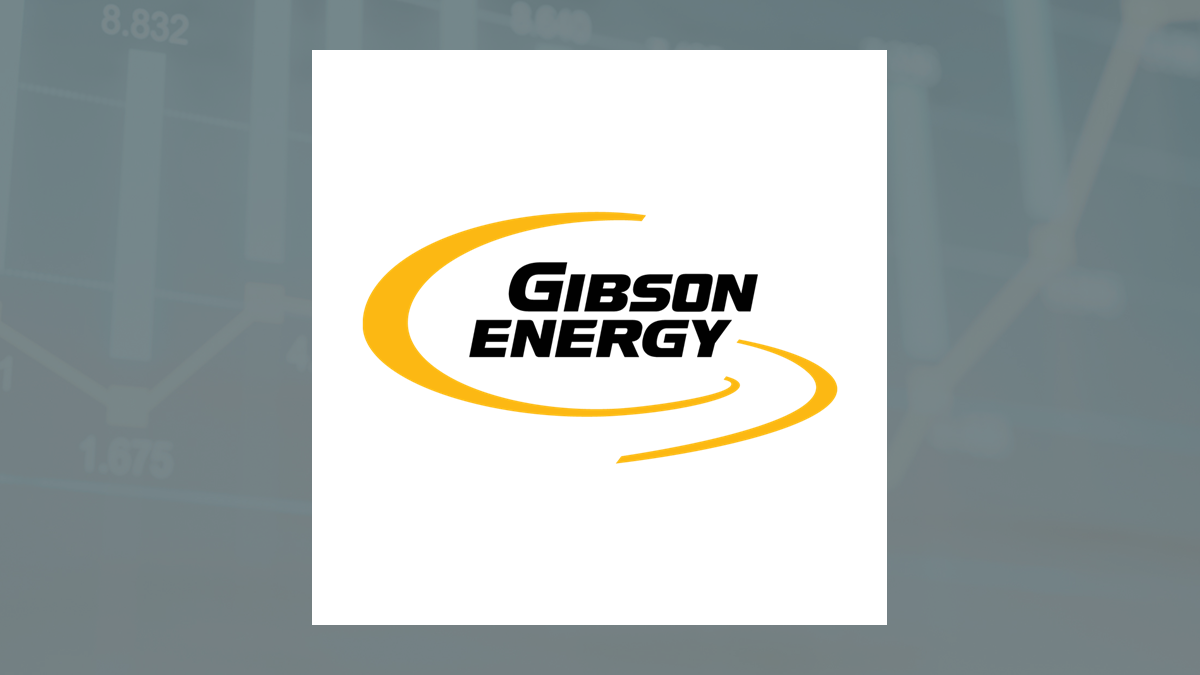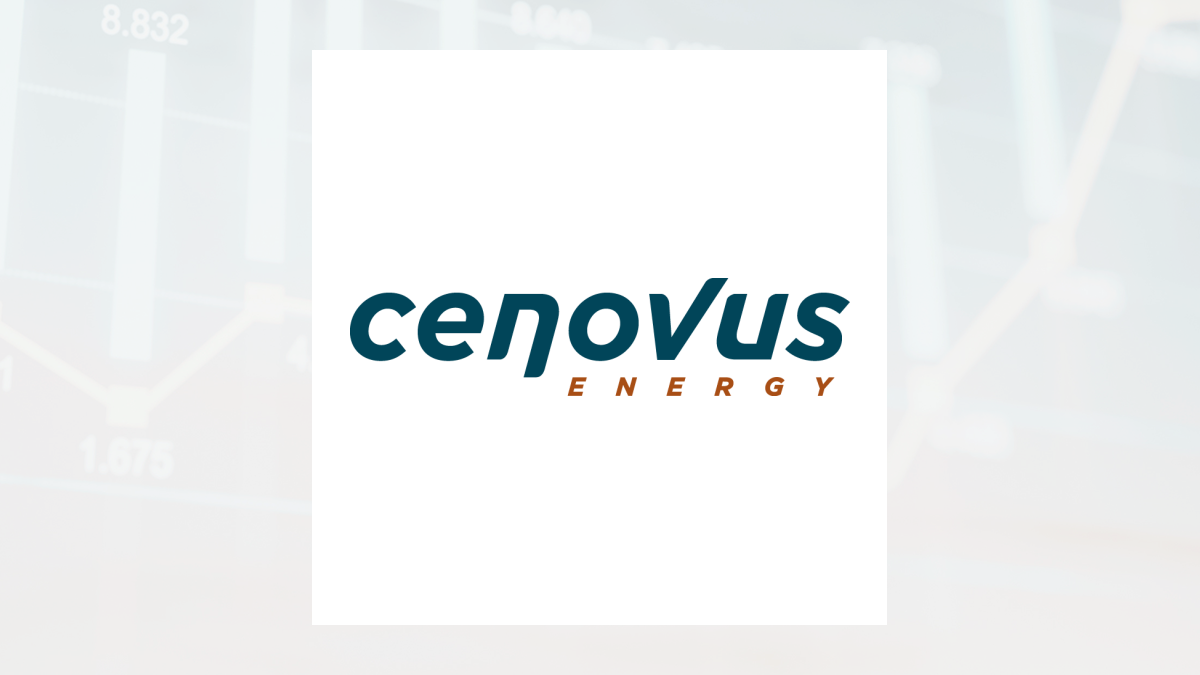Gibson Energy (OTCMKTS:GBNXF – Get Free Report) and Cenovus Energy (NYSE:CVE – Get Free Report) are both energy companies, but which is the better stock? We will contrast the two businesses based on the strength of their risk, dividends, profitability, earnings, valuation, institutional ownership and analyst recommendations.
Analyst Ratings
This is a summary of recent ratings and price targets for Gibson Energy and Cenovus Energy, as provided by MarketBeat.
| Sell Ratings | Hold Ratings | Buy Ratings | Strong Buy Ratings | Rating Score | |
| Gibson Energy | 0 | 3 | 1 | 1 | 2.60 |
| Cenovus Energy | 0 | 4 | 4 | 1 | 2.67 |
Cenovus Energy has a consensus price target of $25.75, indicating a potential upside of 75.95%. Given Cenovus Energy’s stronger consensus rating and higher possible upside, analysts plainly believe Cenovus Energy is more favorable than Gibson Energy.
Profitability
| Net Margins | Return on Equity | Return on Assets | |
| Gibson Energy | 1.44% | 16.96% | 3.31% |
| Cenovus Energy | 5.22% | 9.56% | 5.04% |
Institutional & Insider Ownership
0.2% of Gibson Energy shares are owned by institutional investors. Comparatively, 51.2% of Cenovus Energy shares are owned by institutional investors. Strong institutional ownership is an indication that large money managers, hedge funds and endowments believe a stock is poised for long-term growth.
Dividends
Gibson Energy pays an annual dividend of $1.20 per share and has a dividend yield of 6.9%. Cenovus Energy pays an annual dividend of $0.58 per share and has a dividend yield of 4.0%. Gibson Energy pays out 169.0% of its earnings in the form of a dividend, suggesting it may not have sufficient earnings to cover its dividend payment in the future. Cenovus Energy pays out 54.2% of its earnings in the form of a dividend. Cenovus Energy has increased its dividend for 4 consecutive years.
Earnings & Valuation
This table compares Gibson Energy and Cenovus Energy”s top-line revenue, earnings per share and valuation.
| Gross Revenue | Price/Sales Ratio | Net Income | Earnings Per Share | Price/Earnings Ratio | |
| Gibson Energy | $8.60 billion | 0.33 | $111.06 million | $0.71 | 24.66 |
| Cenovus Energy | $39.62 billion | 0.67 | $2.29 billion | $1.07 | 13.68 |
Cenovus Energy has higher revenue and earnings than Gibson Energy. Cenovus Energy is trading at a lower price-to-earnings ratio than Gibson Energy, indicating that it is currently the more affordable of the two stocks.
Risk & Volatility
Gibson Energy has a beta of 0.85, suggesting that its stock price is 15% less volatile than the S&P 500. Comparatively, Cenovus Energy has a beta of 0.94, suggesting that its stock price is 6% less volatile than the S&P 500.
Summary
Cenovus Energy beats Gibson Energy on 13 of the 16 factors compared between the two stocks.
About Gibson Energy
 Gibson Energy Inc., together with its subsidiaries, engages in the gathering, storage, optimization, processing, and marketing of liquids and refined products in Canada and the United States. It operates through Infrastructure and Marketing segments. The Infrastructure segment operates a network of liquid infrastructure assets that include oil terminals, rail loading and unloading facilities, gathering pipelines, a crude oil processing facility, and other terminals. The Marketing segment purchases, sells, stores, and optimizes hydrocarbon products, including crude oil, natural gas liquids, road asphalt, roofing flux, frac oils, light and heavy straight run distillates, vacuum gas oil, and an oil-based mud product. It serves producers, refiners, marketers, and integrated companies, as well as exploration and production companies. The company was formerly known as Gibson Energy Holdings ULC and changed its name to Gibson Energy Inc. in April 2011. Gibson Energy Inc. was founded in 1953 and is headquartered in Calgary, Canada.
Gibson Energy Inc., together with its subsidiaries, engages in the gathering, storage, optimization, processing, and marketing of liquids and refined products in Canada and the United States. It operates through Infrastructure and Marketing segments. The Infrastructure segment operates a network of liquid infrastructure assets that include oil terminals, rail loading and unloading facilities, gathering pipelines, a crude oil processing facility, and other terminals. The Marketing segment purchases, sells, stores, and optimizes hydrocarbon products, including crude oil, natural gas liquids, road asphalt, roofing flux, frac oils, light and heavy straight run distillates, vacuum gas oil, and an oil-based mud product. It serves producers, refiners, marketers, and integrated companies, as well as exploration and production companies. The company was formerly known as Gibson Energy Holdings ULC and changed its name to Gibson Energy Inc. in April 2011. Gibson Energy Inc. was founded in 1953 and is headquartered in Calgary, Canada.
About Cenovus Energy
 Cenovus Energy Inc., together with its subsidiaries, develops, produces, refines, transports, and markets crude oil, natural gas, and refined petroleum products in Canada and internationally. The company operates through Oil Sands, Conventional, Offshore, Canadian Refining, and U.S. Refining segments. The Oil Sands segment develops and produces bitumen and heavy oil in northern Alberta and Saskatchewan. This segment assets include Foster Creek, Christina Lake, and Sunrise projects, as well as Lloydminster thermal and conventional heavy oil assets. The Conventional segment holds natural gas liquids and natural gas assets primarily located in Elmworth-Wapiti, Kaybob-Edson, Clearwater, and Rainbow Lake operating in Alberta and British Columbia, as well as interests in various natural gas processing facilities. The offshore segment engages in offshore operation, exploration, and development activities in China and the East Coast of Canada. The Canadian Refining segment owns and operates Lloydminster upgrading and asphalt refining complex, which converts heavy oil and bitumen into synthetic crude oil, diesel, asphalt, and other ancillary products, as well as Bruderheim crude-by-rail terminal and ethanol plants. The U.S. Refining segment refines crude oil to produce gasoline, diesel, jet fuel, asphalt, and other products. Cenovus Energy Inc. is headquartered in Calgary, Canada.
Cenovus Energy Inc., together with its subsidiaries, develops, produces, refines, transports, and markets crude oil, natural gas, and refined petroleum products in Canada and internationally. The company operates through Oil Sands, Conventional, Offshore, Canadian Refining, and U.S. Refining segments. The Oil Sands segment develops and produces bitumen and heavy oil in northern Alberta and Saskatchewan. This segment assets include Foster Creek, Christina Lake, and Sunrise projects, as well as Lloydminster thermal and conventional heavy oil assets. The Conventional segment holds natural gas liquids and natural gas assets primarily located in Elmworth-Wapiti, Kaybob-Edson, Clearwater, and Rainbow Lake operating in Alberta and British Columbia, as well as interests in various natural gas processing facilities. The offshore segment engages in offshore operation, exploration, and development activities in China and the East Coast of Canada. The Canadian Refining segment owns and operates Lloydminster upgrading and asphalt refining complex, which converts heavy oil and bitumen into synthetic crude oil, diesel, asphalt, and other ancillary products, as well as Bruderheim crude-by-rail terminal and ethanol plants. The U.S. Refining segment refines crude oil to produce gasoline, diesel, jet fuel, asphalt, and other products. Cenovus Energy Inc. is headquartered in Calgary, Canada.
Receive News & Ratings for Gibson Energy Daily - Enter your email address below to receive a concise daily summary of the latest news and analysts' ratings for Gibson Energy and related companies with MarketBeat.com's FREE daily email newsletter.
